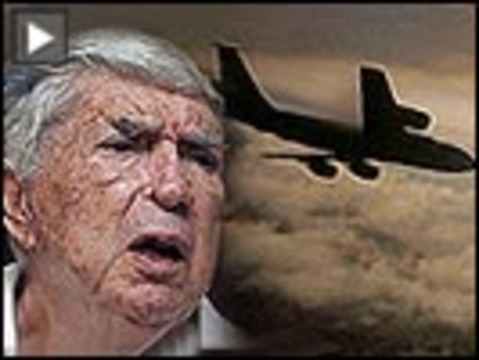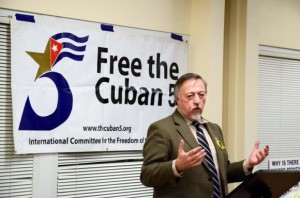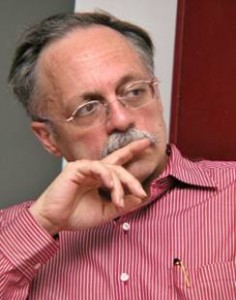
Cuba mourns anniversary of terrorist bombing of Cubana flight 455
Twenty-five years before September 11 there was October 6.
In 1976, on October 6, anti-Castro terrorists planted and ignited two bombs on a Cuban passenger plane killing all 73 passengers and five crewmembers on board after it crashed off of the coast of Barbados. It was Cubana de Aviacion, flight 455.

Stephen Kimber, author of “What Lies Across the Water: The Real Story of the Cuban Five,” told teleSUR English it was “the most deadly act of air terrorism in the Americas prior to 9/11.”
The average age of the passengers was 30, including a 22-year-old pregnant woman. The Cuban fencing team was also aboard, after just having won gold medals at the Pan American games.
Previously secret documents just released in October by the National Security Archive, an investigative journalism and research group based at George Washington University, show relations between Washington and Havana took a sharp turn for the worse that year when then-Secretary of State Henry Kissinger became so incensed that Cuba would send troops to Angola, one of the many battle fronts of the Cold War, that he told President Gerald Ford that he wanted to “smash Castro” and “humiliate” the Cuban government.
Kissinger wanted to launch airstrikes against Cuba, mine Cuban harbors, and impose severe economic and political sanctions against the island nation. Ford nixed the idea until after the election, which he eventually lost to President Jimmy Carter.
“That revelation shows us that the U.S. decided on a different tact to humiliate Cuba,” José Pertierra, a Washington-based lawyer, told teleSUR English. “What the U.S. did is subcontract work out to Cuban-American terrorists who they had trained and funded.”
Pertierra was approached by the government of former Venezuelan president Hugo Chavez in 2005 to extradite one of the Cuban-American terrorists who masterminded the bombing, Luis Posada Carriles.
Posada Carriles, a former CIA asset, snuck into the United States in March 2005, where he took up residence in Miami, a hotbed for the hardline anti–Castro Cuban exile community.
Clarence M. Kelley, who served as Director of the FBI between 1973-1978, sent a letter to Kissinger on November 5, 1976, stating that according to a confidential source inside of Venezuela’s intelligence service, the bombing of the Cuban passenger plane was “planned, in part, in Caracas, Venezuela, at two meetings attended by Morales Navarrete, Luis Posada Carriles and Frank Castro.”
Two Venezuelan nationals, Hernan Ricardo and Freddy Lugo, who were on the plane and responsible for planting the bombs, were picked up by Barbadian police. They confessed to Barbadian and Trinidad officials to the bombings, but not before implicating Posada Carriles, who they say trained them in explosives. Both served 20–year sentences in Venezuela after being extradited there.
Posada Carriles, in addition to being trained in explosives by the CIA, was also trained at the infamous School of the Americas in Fort Benning, Georgia. His long resumé includes a stint in Guatemala in efforts to overthrow the government, working as the head on Venezuelan intelligence running counterinsurgency operations against the guerrilla, as well as running weapons to the U.S.– backed drug-running paramilitary Contras in Nicaragua.
Posada Carriles was also arrested and imprisoned in Venezuela before escaping from prison in 1985 prior to the conclusion of his trial for his role in the bombing of Cuban airliner 455.

Posada Carriles’ terrorism against Cuba didn’t stop with the passenger plane bombing. He also admitted responsibility for the 1997 bombings of hotels in Havana that killed an Italian–Canadian man and injured 11 people. Posada Carriles’ reportedly told a New York Times reporter in a 1998, taped interview that despite killing the man, “I sleep like a baby.”
“He’s the Osama bin Laden of terrorism on the Americas,” said Pertierra.
After flaunting his presence in the United States in an interview with the Miami Herald, he was shortly thereafter detained by the U.S, Department of Homeland Security and imprisoned in El Paso for illegally entering the country. However, rather than deport him to Venezuela where he is a wanted fugitive, he was released on bail.
Posada Carriles finally saw the inside of a U.S. court room in 2011. However, he was there not to face terrorism charges – such as conspiring to kill 73 innocent airplane passengers in cold blood, or blowing up hotels in Havana. He was charged, and then later acquitted, for perjury and immigration infractions. Since then the Venezuelan government has suspended efforts to extradite the terrorist.
“It’s the problem with the U.S. war on terrorism. Washington wants to prosecute a war on terrorism a la carte,” said Pertierra. “They want to pick and choose the terrorists they want to prosecute. He was one of their terrorists. He has too many secrets.”
An example of Washington’s hypocrisy is the case of the so-called Cuban Five. They were five counter-terrorism agents sent to Miami to collect intelligence in order to prevent the Cuban exile community, which considers Posada Carriles a hero, from planning or funding further terrorist attacks against Cuba.
The five Cuban agents were arrested in 1998 and swiftly convicted and sentenced to harsh prison terms. They were accused of conspiracy to commit espionage, but not of actual espionage. Nor could the U.S. government verify that any real acts of espionage had been carried out.
“The different approaches with relation to Luis Posada Carriles and the Five, is one more sign of the incredible power of the Miami exiles not only over American politics and foreign policy but also its justice system,” said Kimber. “The American people have yet to come to grips with the reality that their country tolerates, even encourages the kind of terrorist activities it rightly deplores when others do it to them if the target is Cuba.”
Meanwhile, Posada Carriles remains a free man in sunny South Florida.
“He does what any right-wing terrorist does in Miami – retire and live a cushy life,” said Pertierra.
(From Telesur)


